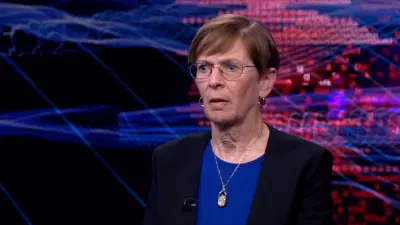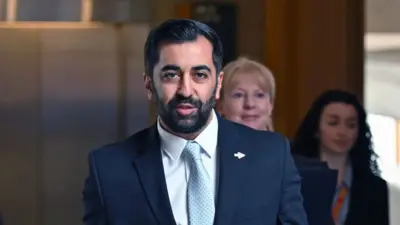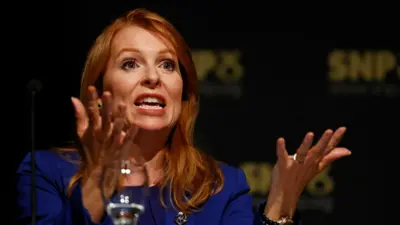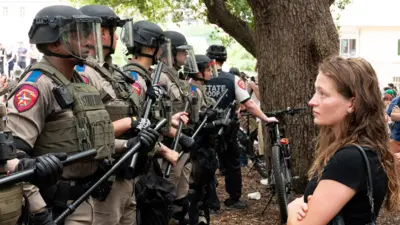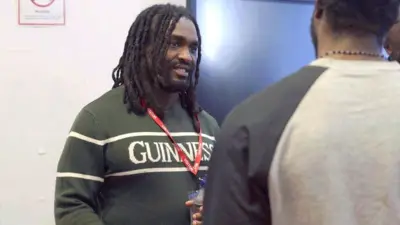We've updated our Privacy and Cookies Policy
We've made some important changes to our Privacy and Cookies Policy and we want you to know what this means for you and your data.
Covid: No vaccine passport expansion in Scotland and new advice in Northern Ireland
Here are five things you need to know about the coronavirus pandemic this Monday evening. We'll have another update for you on Tuesday.
1. Scotland drops plan to expand vaccine passport scheme
A plan to expand vaccine passports to cover more venues - including cinemas, theatres and hospitality settings - would be disproportionate and will not go ahead, Scotland's first minister announced. Nicola Sturgeon told Holyrood that case numbers had fallen slightly and the data was "more positive than we might have expected". Instead, the system - which currently covers nightclubs and big events that cross certain thresholds in terms of audience numbers - will actually be relaxed slightly from 6 December. People who can show a negative Covid test - as an alternative to proof of vaccination - will now be allowed into such events.
Image source, PA Media
2. Plea for more working from home in Northern Ireland
As Northern Ireland grapples with the highest infection rate in the UK, Stormont ministers are urging people to work from home "where possible". Existing advice says people should work from home where they can, but ministers said they were "strengthening" that guidance. In a statement, they said Covid had taken a "firm grip" across society and intervention was required amid rising hospital admissions. People are being advised to limit their social contacts and to wear face coverings in indoor public settings.
Image source, Getty Images
3. Don't delay vaccination, say grieving family
"Just get it done" - that was the message from Stephen Baird after his 27-year-old daughter Rashelle, who was unvaccinated, died last week in hospital with Covid. The mother-of-three from Brechin, near Dundee, was not anti-vaccine but had put off setting an appointment for the jab because she had been so busy with her kids, Mr Baird said. Rashelle - described by her sister as "kind, bubbly, and always the life and soul of the party" - was asthmatic and initially thought she had caught a cold. But her symptoms worsened, she was admitted to hospital and died after several days in intensive care.
Image source, Baird family
4. Hospital doctors fear post-Christmas rise in admissions
Doctors at a hospital in Lanarkshire have told the BBC they are braced for a rise in admissions after Christmas and New Year. Staff at University Hospital Monklands, which is already at capacity, say they have faced "unprecedented demand". Consultant Dr Nick Kennedy said people in their 30s, 40s and 50s were being admitted, but they were responding to treatment. He said he was "very apprehensive" about the number of admissions after the new year. Dr Katie Sykes, another infectious disease consultant said staff were "already broken". "We've been working in crisis mode for nearly two years and there's a limit to how far people can go," she said.
5. AstraZeneca says its jabs may be keeping UK hospital numbers low
AstraZeneca's chief executive has suggested its Covid vaccine, developed with Oxford University, may be playing a role in the UK's relatively low rate of hospital admissions, despite a high infection rate. Pascal Soriot told BBC Radio 4's Today programme that unlike much of Europe, the UK had used the AstraZeneca vaccine on many older people. He said his company's vaccine known to stimulate the T-cell part of the immune system to a higher degree in this group. Unlike antibodies, which wane over time, the T-cells are a more durable immune response, although they can take time to react to infection. So Mr Soriot suggests this may explain why the virus is able to circulate without causing as many hospital admissions as in some other European countries.
And don't forget...
You can find more information, advice and guides on our coronavirus page.
You can read more about how vaccine passports work in Scotland here, and find out about the similar schemes in Wales here and in Northern Ireland here.
Image source, BBC
What questions do you have about coronavirus?
In some cases, your question will be published, displaying your name, age and location as you provide it, unless you state otherwise. Your contact details will never be published. Please ensure you have read our terms & conditions and privacy policy.
Use this form to ask your question:
If you are reading this page and can't see the form you will need to visit the mobile version of the BBC website to submit your question or send them via email to YourQuestions@bbc.co.uk. Please include your name, age and location with any question you send in.
- THE NEW LABOUR REVOLUTION: Two powerful personalities at the heart of a political phenomenon
- FROM TOM HANKS TO EMMA THOMPSON: Check out the great films on BBC iPlayer
Top Stories
Features & Analysis
Most read
Content is not available

